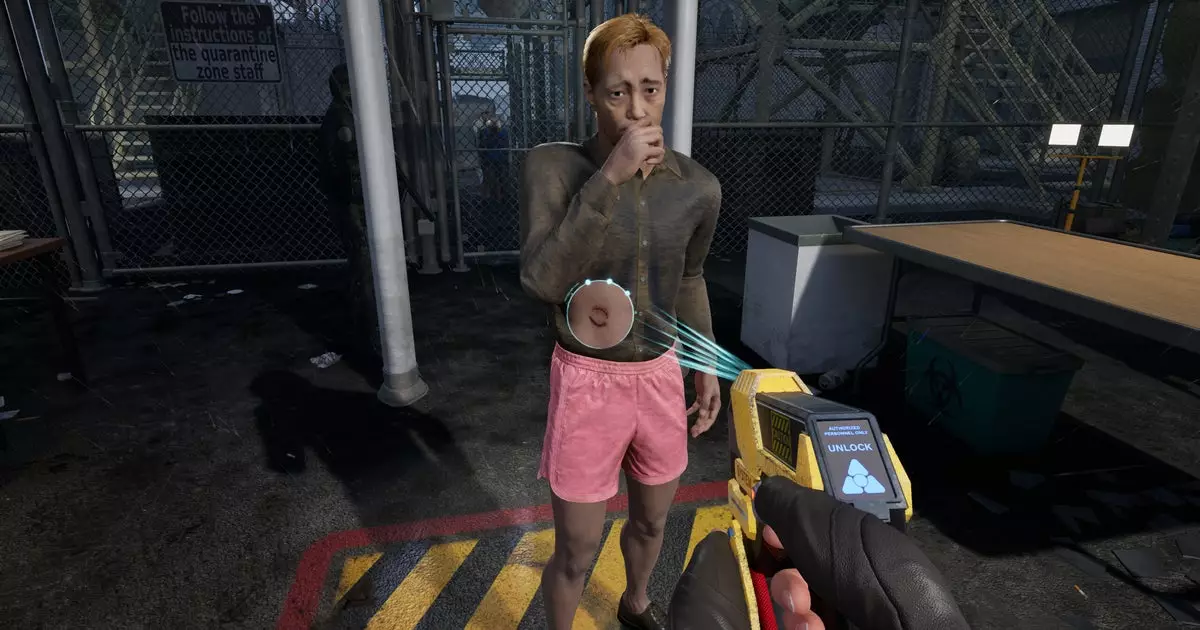In the landscape of modern gaming, few titles manage to intricately blend tension, strategy, and moral ambiguity quite like *Quarantine Zone*. This game encapsulates the visceral reality of managing a human quarantine amidst a relentless zombie outbreak, forcing players into a high-stakes environment where every decision can spell life or death. Its premise, a government checkpoint teeming with refugees and potential threats, isn’t merely a backdrop but an active battleground for discernment, judgment, and survival. The game excels in transforming what could be a simplistic premise into an elaborate commentary on human nature, authority, and the chaos lurking beneath societal order.
By shifting the focus from action-packed zombie slaughter to the meticulous process of inspection and resource management, the game fosters a form of strategic empathy. Every refugee’s story becomes a puzzle: Are they infected, or just unlucky? Is that groan of indigestion or a sign of infection? Such questions demand both instinct and rational judgment, elevating decision-making to an art form. The mechanic of inspecting with UV flashlights, thermometers, and manual scanners imbues a sense of tactile agency, which immerses players more deeply into the harrowing responsibility of containment—mirroring real-world challenges in border control and public safety.
Intricate Systems That Challenge Morality and Strategy
*Quarantine Zone* stands apart by incorporating resource constraints and dynamic threats that test not just reflexes but moral fiber. Limited supplies of testing kits and inspection tools force players to prioritize, creating a perpetual balancing act. Do you quarantine someone based on flimsy evidence or risk allowing a potential infected into the population? Do you deny access to the innocent because of a visible symptom? Each choice carries weight—sometimes with tragic consequences—making the game a microcosm of larger societal dilemmas. The developers seem to suggest that true survival hinges on nuanced judgment rather than brute force or simplistic morality.
The threat environment is continuously evolving, with waves of zombie hordes challenging your defenses, and the unpredictable influx of refugees demanding constant reevaluation. This dynamic adds a strategic layer; players must allocate resources, reinforce defenses, and maintain morale. The nighttime management of base routines offers a stark contrast to the frantic chaos of the day, emphasizing the importance of preparation and foresight. As the game progresses, the tension escalates—every decision, every inspection, becomes a test of your capacity to balance compassion and pragmatism, order and chaos.
Beyond the Horror: A Reflection of Societal and Political Underpinnings
While on the surface *Quarantine Zone* appears to indulge in typical zombie apocalypse tropes, it subtly invites reflection on real-world themes. As you set up defenses and process refugees, the game echoes questions about authority, trust, and societal integrity. Are we all inherently suspicious? How does fear distort our judgments? The game’s bleak atmosphere and harsh choices underscore the fragility of civilization when faced with uncertainty, compelling players to confront uncomfortable truths about human nature and institutional collapse.
However, the game’s portrayal risks leaning into sensationalism if not critically examined. It walks a fine line between social commentary and gruesome spectacle. But perhaps its strength lies in engaging players with the moral gray areas that define crisis scenarios, pushing us to consider how societal structures hold or crumble under pressure. It prompts a vital question: In moments of chaos, do we uphold our humanity or succumb to primal instincts?
A Lighthearted Take Amidst the Darkness
Interestingly, the game also offers a playful, almost satirical alternative perspective. Imagine replacing tense suspicion with humorous inquiry—distinguishing between Buster Keaton and Barney the Dinosaur at the checkpoint. This whimsical twist, whether intentional or conceptual, reveals an underlying desire for levity even in bleak worlds. Could humor serve as a survival tactic, lightening the moral burden of such decisions? The absurdity of mistaking a silent Keaton for a dinosaur pokes fun at overcomplicated inspection processes and reminds us that amidst chaos, a sense of play and curiosity remains vital.
While this humorous detour seems designed to provoke laughter rather than profound thought, it underscores an important point: even in extreme circumstances, humans crave connection, humor, and clarity. Perhaps the real lesson is that empathy and understanding—whether for a suspicious refugee or a comic figure—are essential tools in navigating crises. The game’s eventual release in November promises players an intense yet reflective experience, one that challenges assumptions and invites introspection as much as survival instincts.
—
*In its core, *Quarantine Zone* is more than a game; it’s a mirror to our societal fears, moral dilemmas, and the resilience of human judgment under pressure. It dares us to ask whether justice can truly be impartial when lives hang in the balance—an experience that’s as enlightening as it is harrowing.*

